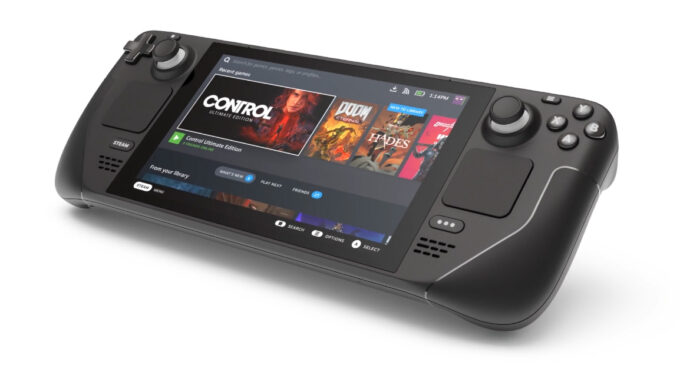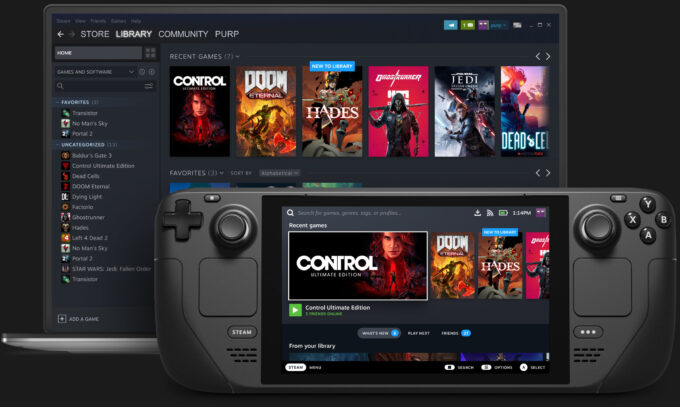- Qualcomm Launches Snapdragon 4 Gen 2 Mobile Platform
- AMD Launches Ryzen PRO 7000 Series Mobile & Desktop Platform
- Intel Launches Sleek Single-Slot Arc Pro A60 Workstation Graphics Card
- NVIDIA Announces Latest Ada Lovelace Additions: GeForce RTX 4060 Ti & RTX 4060
- Maxon Redshift With AMD Radeon GPU Rendering Support Now Available
Steam Deck Aims To Be Compatible With All Games, But Will Likely Fall A Bit Short
Ever since Valve announced its portable Steam Deck gaming device back in June, it’s enjoyed quite a bit of hype – even from those who don’t really see themselves needing one. To have a full-fledged PC in your hands, allowing you to game while on-the-go, is great – especially when the hardware is pretty competent.
Because the Steam Deck runs on Linux, it became obvious quickly that not likely all games that people see on Steam would be able to run on the device. Later, though, word came out that the goal was in fact to have the entire library be playable. As we can now see, though, just because something is a goal, it doesn’t mean it’s guaranteed to become a reality.
As the folks at Rock Paper Shotgun have covered, a recent episode of the Boiling Steam podcast revealed that there’s more than immediately meets the eye with the previous statements. On the latest episode, CodeWeaver’s James B. Ramey made a repeat appearance to talk about what’s coming.
In case you’re unfamiliar, the biggest reason so many PC games have been playable on Linux in recent years is thanks to the compatibility layer Proton, which CodeWeavers has jointly developed alongside Valve. As it stands today, it’s safe to call Proton “amazing” for all it’s accomplished. Any gamer on Linux who used the OS before Proton knows full-well just how painful it was to see brand-new games launch that were not available for the OS. Proton has come along so far at this point, that some games designed specifically for Windows sometimes work for Linux on day one.
In any event, Ramey believes that the original interview that gave people the impression of 100% compatibility was due more to the fact that the hardware itself would be able to handle all of the games. The Steam Deck offers enough space, memory, CPU, and GPU, so that claim is believable.
What seems clear to us is that one of the de facto battles that Proton developers would be facing to reach 100% compatibility are the number of extra libraries certain games ship with, including anti-cheat mechanisms. We could no doubt see anti-cheat work with Proton without issue, but for that to happen easily, the anti-cheat developers themselves would likely need to get involved. Anti-cheat is so finicky, that if anything is off, a gamer could quickly find themselves banned. And that has happened in the past.
We admit that when we first heard this murmur of 100% compatibility, we bought into it. We figured the developers knew something we didn’t, especially on the anti-cheat front. Still, to imagine such a thing happening doesn’t really feel like a pipe dream, at least for newer titles where development is still active. And, ultimately, because this is a PC, those who really want to play games not suited for Proton should be able to install their own copy of Windows, and effectively negate those limitations entirely.






